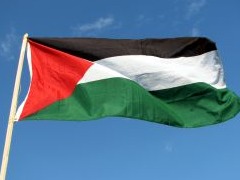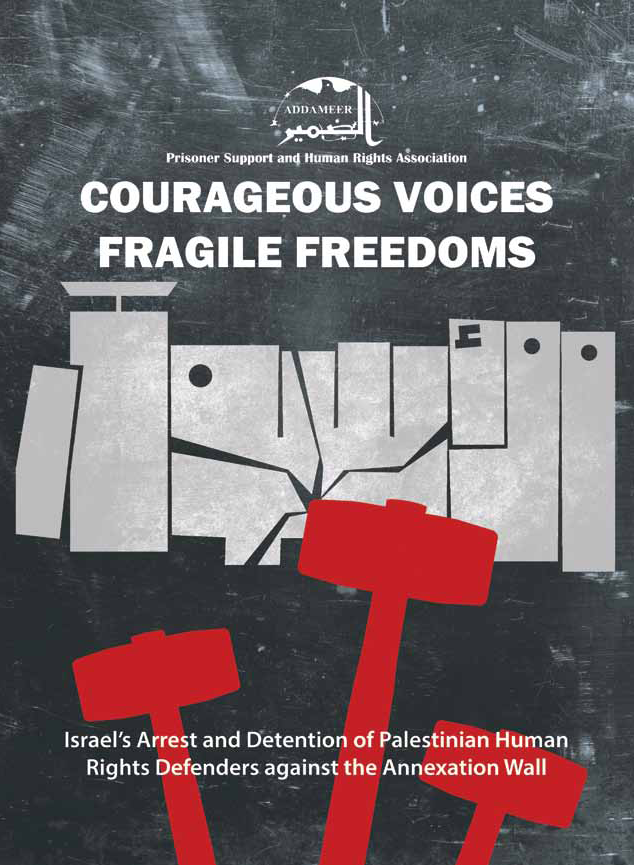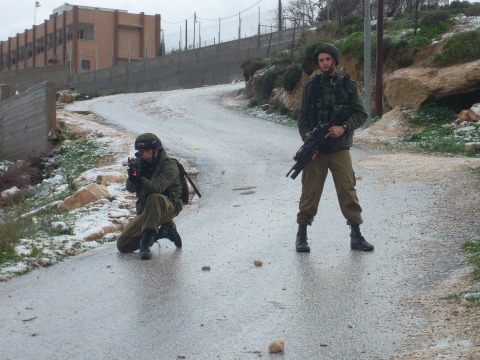Category: Press Releases
-
International activists physically and verbally abused in detention
15th January 2014 | International Solidarity Movement | Occupied Palestine On Wednesday 8th January, Vincent Mainville and Fabio Theodule were arrested by Israeli border police in Khalil (Hebron). The two actvists were handcuffed and taken to Jaabara police station where they were forced to kneel on the concrete floor for approximately 30 minutes. Fabio was blindfolded…
-
Addameer Releases Latest Report on the Continued Targeting of Palestinian Human Rights Activists by Israeli Forces
13th January 2014 | Addameer Prisoner Support and Human Rights Association | Ramallah, Occupied Palestine Addameer Prisoner Support and Human Rights Association are pleased to announce the publication of its latest report ‘Courageous Voices, Fragile Freedoms’. The report examines Israel’s increasing use of arrest and detention of Palestinian human rights activists taking part in protests and…
-
Israeli soldiers attack school In Urif
12th January 2014 | International Solidarity Movement, Nablus Team | Urif, Occupied Palestine At around 9:00am on Sunday 12th January 2014, students at the boys’ school in Urif, in Nablus district, were assaulted by Israeli soldiers firing tear gas grenades within the school grounds. Eleven soldiers from the nearby illegal settlement of Yizhar entered the grounds firing…



